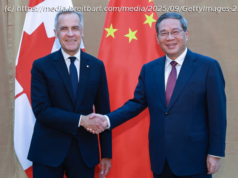 The Deseret News recently caught up with former BYU guard Jimmer Fredette, who was at home on a short break from his duties with the China Basketball Association’s Shanghai Sharks for the Chinese New Year.
The Deseret News recently caught up with former BYU guard Jimmer Fredette, who was at home on a short break from his duties with the China Basketball Association’s Shanghai Sharks for the Chinese New Year.
Fredette discussed how he ended up in China, what it has been like in the CBA, including some of the different rules and what’s it has been like to have the green light.
He also touched on how he ended up with a shoe deal, how his ankle is coming along from a recent injury and if a stay in China is in his long-term plans.
Deseret News: What went into the decision to head to China instead of going to Europe or an NBA camp?
Jimmer Fredette: We just felt like the Shanghai situation was the best situation for me and my family at this point. We had some different camps that we could have gone to in the NBA, but nothing guaranteed at that point. In Europe, we had some good offers as well, but we felt the Shanghai opportunity was the best opportunity.
It’s obviously a massive city. The people in China love basketball. It’s a shorter season and they pay really well over there. It’s an opportunity to go over and showcase what you can do and play a lot of minutes and hopefully be able to do what you can.
Fortunately, it’s turned out well so far. Having Yao Ming as the owner was a big reason why we felt like it was a good situation for us. He knows the NBA game and about me and they treat their team like an NBA team. It’s been a really good situation.
DN: How has the CBA been different from your experience in the NBA?
JF: You’re in a different country obviously so there’s the language barrier that is very different and the basketball is different. They play 12 minute quarters, but they play different rules, more European rules in China.
They expect the imports over there to go out and score and really be efficient and help the team win. That’s what they want and we have been fortunate enough that we have a really good team and have played really well. We are in first place at this point so things have gone well and obviously, I’m playing a lot more in China than I ever did in the NBA so I have the ball in my hands a lot more. Playing a lot more, getting into a comfortable rhythm being able to go out there, night in and night out and play consistent minutes.
That’s been great to be able to have that again and to go out and just kind of do what I can do.
DN: What’s it been like to have the ultimate green light, and ultimately the responsibility to produce at such a high level?
JF: It’s a great position to be in. As a basketball player, that’s the position you want to be in and you’ve worked for your whole life. To be able to have that is something that is great. You don’t always get that as a professional basketball player no matter where you’re playing.
Sometimes, you take your lumps and do whatever the team needs you to do then once in a while you get the opportunity to get the keys handed to you and go out there and try to lead the team. I’ve been fortunate to have that opportunity this year and so far it’s gone really well. I feel comfortable in that role. I feel comfortable leading a team and playing night in, night out consistently. I know that if get consistent minutes I will be a consistent basketball player. I feel like I have always been that way. That’s just kind of the way that my game is so it’s been great.
DN: How is the ankle doing?
JF: Good, very good. I’ve played the last two games, and it’s felt good so no problems or issues anymore.
DN: How has it been to adjust to the import minutes restriction?
JF: You never know what is going to happen on a game-to-game basis. It’s obviously a rule that the imports have to deal with and abide by and the coaches have to figure out what they want to do on that night. As a competitor, you never want to come out of a game. Doesn’t matter who you are. As a basketball player you never want to come out if you don’t have to, but at the same time, the coach is trying to find out the best fit for the team for that game.
I’ve been fortunate enough to play most of the fourth quarters during the year and G (Guerschon Yabusele) has had to sit. He has been amazing and supporting, and doing anything he can from the sideline in the fourth quarter. Then when he gets an opportunity, I try to be the same way, try to be supportive and try to help out from the bench as much as I can.
It’s definitely different, but it’s something you deal with in the CBA.
DN: How has the adjustment been for you off the court?
JF: It’s been great. Specifically, in Shanghai, it’s such a big city. It’s a lot more Western than other places, other cities in China. There’s a lot of great places to eat. A lot of guys on my team speak English and we have some translators who help us out if we need anything, but it’s pretty easy to get around. I know how to get around in the subway real easy, and I know how to get to all the places I need to go and all the good restaurants and stuff like that.
Shanghai is just like any other great big city in the world. It’s got an amazing skyline and there’s a lot of cool things to do so you don’t get bored there.
It’s been an easy transition for me as far as that’s concerned, but that’s mainly because I’m in Shanghai.
DN: Has your faith helped with the transition; Is there a LDS ward there?
JF: Yep there is. There are three different branches that you can go to that all meet in the same building. I’ve been able to attend all of them at different times depending on the schedule and I’ve met some really great people who have really helped me out and have been a really great support system for me over there.
That church is almost everywhere in the world — even in China, and it’s great to be able to have that support system.
DN: How has your reception been with the rest of the Chinese people?
JF: It’s been really good. Fortunately, it’s been an awesome situation, and I’ve really enjoyed the people, and I think they’ve enjoyed me.
It’s all about being yourself, just going out and trying to be as nice as you possibly can — kind and respectful to their culture and to anybody that I meet. That’s just the way that I have always been, not necessarily just because I’m in a different country.
Home
United States
USA — China Q&A: Jimmer Fredette talks about playing in China, his shoe deal and...






